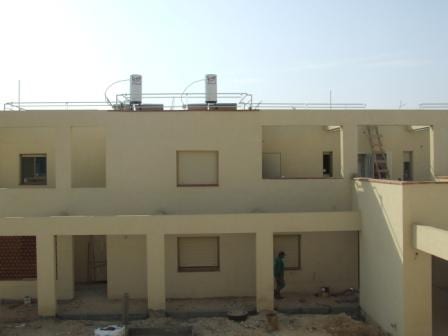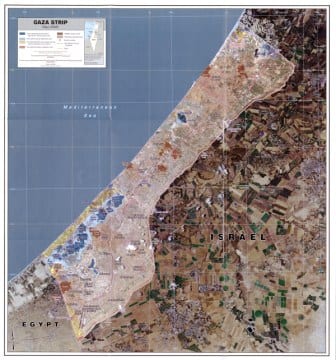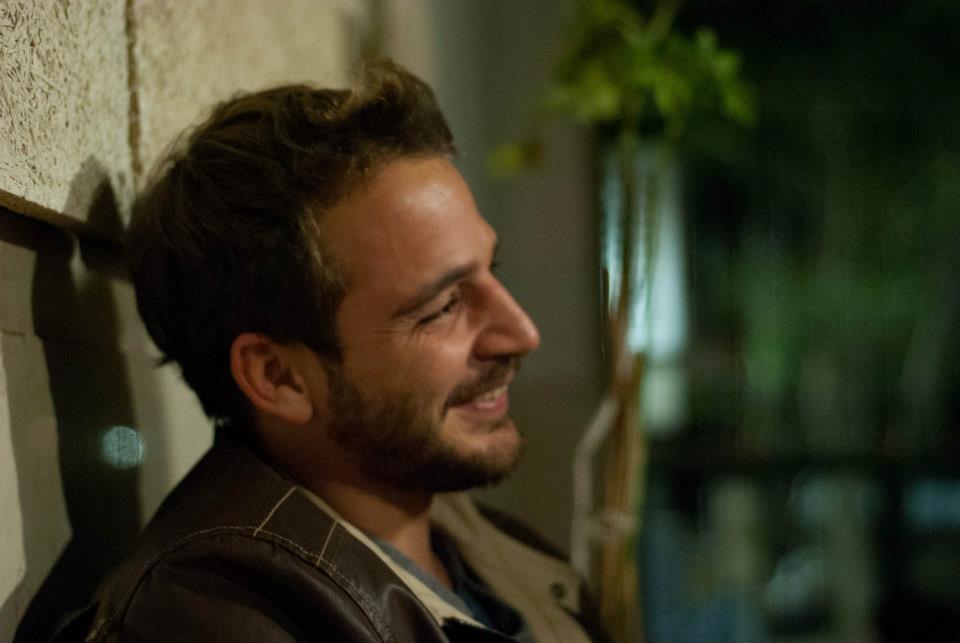Message from the Director – November has been an extremely hectic month for both me and the institute. The month began with the 12th Israel Ride. This year’s ride started in the north of the country in a small coastal village near Acco and included two days of riding in the Galil, through the Hula Valley, up to the Golan Heights, by the Sea of Galilee and down to Beit Shean. The rest of the ride was on our traditional route in the south including a visit to Ben Gurion’s grave, Shabbat in Mitzpeh Ramon, an overnight at Kibbutz Ketura and the Arava Institute and our final stop on the beach in Eilat. All 60 riders had a phenomenal time. Registration is already open for 2013 www.israelride.org . A few days after the ride I took off for a fundraising trip to San Francisco and Los Angeles meeting with Friends of the Arava Institute board members, donors, JNF donors and Arava Institute alumni. At almost the same time as I arrived in San Francisco, a group of 25 participants from the developing world landed in Israel for the Arava Institute’s MASHAV program on Renewable Energy. Participants in the 12 day course come from 16 countries including China, Colombia, Ghana, Senegal, Serbia, Kazakhstan and Guatemala MASHAV is the foreign aid agency of the Israeli Foreign Ministry which has recently granted the Arava Institute official status. This course coincides with the Eilat/Eilot 5th International Renewable Energy Conference http://www.eilatenergy.org/. The Renewable Energy Conference is sponsored by the Eilat/Eilot Renewable Energy Initiative, the Hevel Eilot Regional Council, the city of Eilat and the Greater Toronto Jewish Federation show cases the research of the Arava Institute’s Center for Renewable Energy and Energy Conservation headed by our own Dr. Tareq Abu-Hamed. Of course, needless to say, the recent conflict between Israel and Gaza had a major impact on the institute, staff and students. It is always a test of our conviction that dialogue and peaceful reconciliation is the only long-term solution to stability and sustainability in the region. Once again our students, staff and alumni proved that our commonalities and mutual concern for the environment are stronger than our differences. A certain level of quiet has returned to the region. As our Palestinian, Israeli, Jordanian and international students strive to work together towards a cleaner healthier and more peaceful world, we call upon all leaders in the region and across the globe to learn from their example. In this blog I have posted three brief paragraphs; (1) Our new carbon neutral dorms (2) An alumni profile of Liel Maghen and (3) A different view of Gaza Israel relations – a report on how the Arava Institute is working with Gazans to treat saline water for drinking (4) How the recent conflict between Israel and Gaza has impacted the students at the institute..
The New Carbon Neutral Dorms – 
After studying in the Arava institute in the 2009-2010 academic year, Liel decided that he would like to know more about the region and the political relationships which shape it. Therefore, he enrolled at Hebrew University in Jerusalem to study political science and Middle Eastern studies.
As an alum of the Arava Institute, he was selected for an internship program in Washington D.C where he interned with the late REP. Donald Payne. During his internship he delivered a speech in a US congressional forum and another one in front of a conference of local Muslim leaders. On his return to Israel during 2011 he continued his political experience by interning in MK Avishay Braverman office. Over the last two years, Liel has led tours for MEDJI Tours, which is a joint Jewish/Arab tour operator that creates custom group multi-narrative tours to Israel, Palestine, Turkey, Egypt and Jordan. By working with for MEDJI Tours (which has won prizes from the U.N and became a National Geographic official operator) Liel gave tours to different groups from around the world including different celebrities. In addition, Liel is involved with coordinating many AIES Alumni gatherings, including an inter-personal Alumni Workshop in Jordan in 2011 and a three-day desert hike that started at the EcoME Center last May. Liel believes that his experience in the Arava institute changed the way he sees the region. The Arava Institute’s motto “Environment knows No Borders” has become the lenses from which he understands the region as one unit and that it’s communities can bond together beyond the political borders that divide them. Submitted by Cathie Granit, Programs Director

The Arava Institute’s Center for Transboundary Water Management (CTWM) is developing a household level solar-powered desalination unit for the treatment of brackish water. This project, funded by the Osprey Foundation and the International Foundation, seeks to improve the quality of drinking water for residents of the Gaza Strip. Nearly 95% of the municipal freshwater in Gaza is polluted to levels unfit for human consumption. In municipal wells, chloride levels are, on average, four times the 250 mg/L limit recommended by the World Health Organization (WHO), and the nitrate concentration is roughly six times higher than the WHO limit of 50 mg/L. This project will improve dramatically the quality of drinking water for Gaza’s residents. CTWM is now completing the first stage of the project which is the design and testing of the unit. The second phase will take place in Gaza where an operational unit will be installed at a designated site. CTWM is working with the UNDP Program for the Assistance of the Palestinian People Gaza Office in choosing the appropriate site in Gaza for installation and operation of the system. Submitted by Dr. Clive Lipchin, Director of CTWM
The impact of the conflict between Gaza and Israel on the Institute
Within the Academic Department, we have been – in deja-vu the past two weeks— another Gaza war, another test for the Arava Institute community; another round of anxiety, confusion, rage, blame–more people we care about being dragged into danger, on all sides of the divide. One of our Israeli students received emergency orders to go to his tank unit on the border with Gaza. Other students worried about their families and friends, both in Gaza and in Israeli communities in the South. In order to support our students during this crisis, we organized 5 sessions in the Peace Building and Environmental Leadership Seminar (PELS) framework:
- Two Current Affairs focusing on Gaza: one in the beginning of the recent turmoil leading up to Operation Pillars of Defense, and one after the cease-fire was announced.
- One PELS session answered the need of the group for ventilation, sharing, solidarity, and a safe space to discuss the diverse viewpoints.
- Two student-run sessions:
- Social Media, Interpretations, and Empowerment–focusing specifically on how different media outlets covered the bus bombing in Tel Aviv, and afterwards exploring how Facebook impacts our experiences individually and as a group living together.
- Defending Our Nation: personal testimonies from students about their experiences in the military, and a discussion pertaining to Security, Resistance, and Personal Duty.
The Campus Life team offered activities that complimented the PELS Programming. The students had a Village Council during this period, they screened a funny movie to offer tension relief, they made breakfast on the Campus together, and they had a hike up the mountain to watch the sunset together. Submitted by Michelle Shachar, PELS Coordinator


